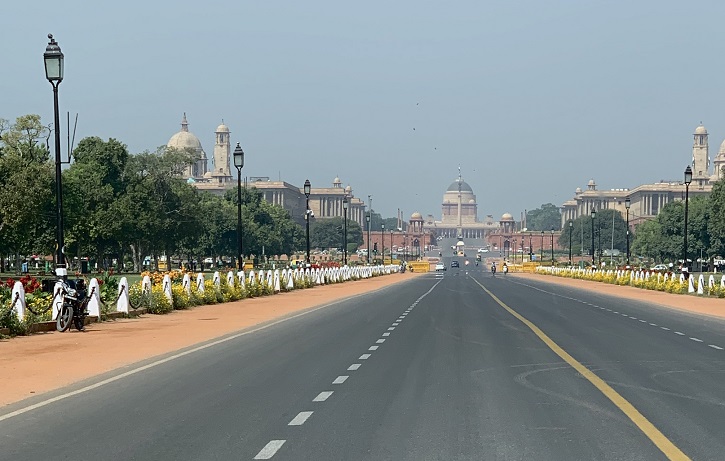On Thursday 11 June, a global audience tuned in online to hear Prof Corinne Le Quéré from UEA’s Faculty of Science deliver the findings of her recent research into the impact of the coronavirus on carbon emissions. Megan Thrift, who helps organise UEA’s London Lecture series, shares the highlights.

Speaking live from UEA’s TV Studio, Prof Le Quéré began her lecture recalling the 27 February of this year – the day a journalist first posed her the question of how the new coronavirus would impact the environment. “I kind of ducked the question, thinking this will blow over,” she said. “How big can it be?”
I’m sure many of us in the UK can remember feeling similar at the time. The threat felt quite distant. We were still three weeks away from lockdown. But, just as we all had to, Prof Le Quéré eventually faced the reality of the situation and gathered her team to research the very question posed to her by that first journalist.
The data that they tracked over the following months has produced some surprising results.
At the peak of the confinement on 7 April, global CO2 emissions had reduced globally by 17%. Individually, countries reduced their emissions by an average of 26% during their periods of lockdown. Such a steep drop in emissions has never been seen before, however this only took us back to the levels recorded in 2006 due to the significant growth in emissions since this time. As Prof Le Quéré said: “This drop in emissions, as impressive as it is, will do nothing to slow climate change.”
The audience for Prof Le Quéré’s lecture was presented with the six sectors assessed in terms of the percentage of global CO2 emissions they contribute. These are power (44%), industry (22%), surface transport (21%), residential (6%), public (4%) and aviation (3%). The data that Prof Le Quéré and her team have collected shows reduction in CO2 emissions from surface transport contributed 43% of the drop in global emissions, the industry contributed 25%, and power 19%. So despite surface transport (such as cars and lorries) being the third largest contributor to emissions, the reduction in their use during lockdown had the greatest and most immediate impact on the reduction of global CO2 emissions. This has significant implications for the way we approach the goal of net zero carbon emissions in the future.
But Prof Le Quéré was quick to highlight the flaws in the way that these reductions in emissions were achieved. “The changes in emissions during confinement are not structural changes,” she said. “They are forced behaviour change; they are painful, brutal even. And because of that it is no surprise that the decrease in emissions won’t last.”
Prof Le Quéré emphasises that focusing on deploying green infrastructure provides a positive offer, as it creates jobs and supports a public desire to make effective and permanent changes to our behaviour. To her, green infrastructure is not just ‘the big stuff’ such as power plants. She’s referring to the green alternatives to everyday infrastructures such as the cars we drive, the appliances in our homes, the building materials we use and the ways that we travel.
But also to the sorts of jobs we create as part of our recovery process, training people to work in green industries rather than investing in things that lock us in to the use of fossil fuels.
Without significant investment and government support to make these changes in a way that is fair for all members of society, we will be ill equipped to achieve the net zero emissions target that is crucial for our planet’s recovery.
“Are we ready to do what it takes to tackle climate change fairly, peacefully?” Prof Le Quéré asked the audience. “Has the time finally arrived? It is up to us now, in the coming weeks.”
The COVID-19 pandemic is shining a light on the deep-seated inequalities within our societies, with marginalised and minority groups being the most adversely affected by both the virus itself and the economic fallout generated in its wake. These are the same groups that also bear the brunt of the impacts of climate change. As eye opening as the data is, I believe the most crucial thing we can take away from Prof Le Quéré’s presentation is the picture she paints for the roadmap ahead. As she said: “The unbearable pressure we put on the environment and the unacceptable burden of inequality need to be addressed as part of the same path forward we set as we come out of the current crisis.”

)